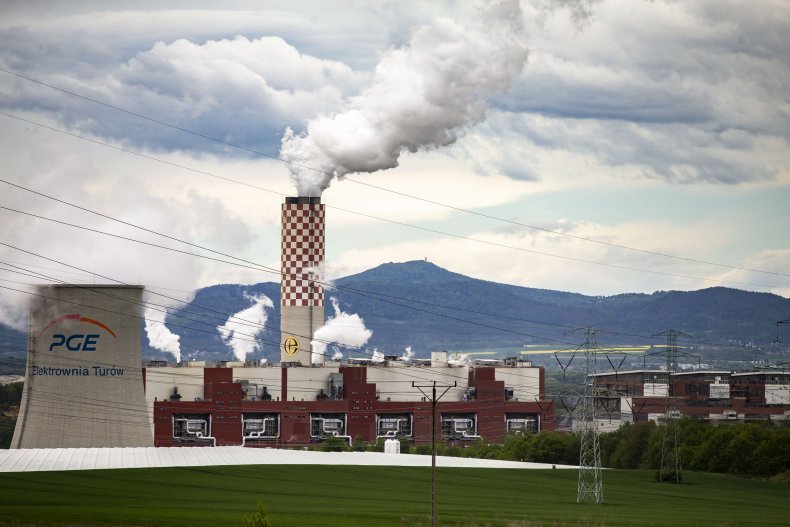Thousands of Polish coal mining and power workers took to the streets in Warsaw Wednesday to protest the county’s transition to renewable energy and a European Union court order to immediately close down a mine.
The demonstrators also said that Poland’s shift from coal would threaten national security and make the country more dependent on fuel and power imports from Germany and Russia. “We are threatened with the loss of energy sovereignty if we close our mines, our power plants and will be forced to import power,” said Krzysztof Gonerski, head of a Solidarity union chapter at the ENEA energy company in Gorzów Wielkopolski.
On Tuesday, officials in the Lodz province and the PGE energy group announced that Europe’s largest brown coal power plant, in Belchatow, will be phased out between 2030 and 2036 and that its mine will close in 2038. While the move was celebrated by environmentalists, the mine is the region’s biggest employer, with about 10,000 workers.
Gabriel Kuchta/Getty Images
For more reporting from the Associated Press, see below:
Gonerski said wind and solar energy is not enough to substitute for coal, while the only viable option is nuclear energy.
“But Germany is already saying it will not allow a nuclear power plant near its border, so we will have to import expensive energy from Germany, from France,” Gonerski said.
He said the EU is ruled by “ecoterrorists” who are not really aware of the situation.
The demonstrators left petitions at the European Commission’s office in Warsaw and some government ministries but were not let into the prime minister’s office and stuck a copy on the door.
They accuse the right-wing government of caving in to EU demands and charting out the timetable for the full closure of mines by 2049. Energy experts say that will happen much sooner, because Poland’s coal mines are becoming increasingly deeper and costlier, making extraction unviable. Some users are already importing cheaper coal, including from Russia.
Wednesday’s protest was spurred by an order last month from a top EU court for Poland to immediately halt operation of the Turow brown coal mine that feeds the Turow power plant, the source of some 7 percent of Poland’s energy. The ruling was in response to a lawsuit by the neighboring Czech Republic which says the mine is draining water from its border villages.
Poland has not stopped the Turow mine, which belongs to the state PGE energy group, arguing it would cut power to over 2 million households and would have a negative effect on the European power grid. It insists that the court did not have full information on the situation while making its decision, which is temporary, pending a full ruling that can take many months. Warsaw is holding intensive talks with Prague seeking to settle the matter out of court.
“I cannot imagine Turow being closed, it is too important in Poland’s grid, “Gonerski said, stressing that the Czech Republic and Germany are operating a number of lignite mines in the same area.
Formerly coal-driven, Poland has taken strides in embracing renewable energy sources.
Of over 70 coal mines and almost 400,000 miners it had in 1990, it now has some 20 mines and fewer than 80,000 miners and is planning further cuts. At the same time, the solar energy sector boomed in the past two years thanks to government and local subsidies and wind energy is developing, despite some recent legislative obstacles. There are plans for a nuclear power plant to start operations around 2035, but crucial decisions on the technology, partnership and financing still need to be made.
Still, Poland is always negotiating its own terms and timetables for phasing out coal and the EU and environmental groups say the changes are too slow and the plans not ambitious enough to meet the bloc’s goals of greenhouse gas reductions.



















